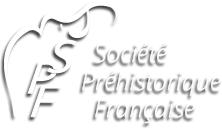 A noter / Autour de la Préhistoire
A noter / Autour de la Préhistoire 

Congrès, colloques, réunions
30 août 2017 - 3 septembre 2017
Maastricht

A session of the 23rd Annual Meeting of the European Association of Archaeologists - EAA 2017
Organizers
- Andrea Dolfini (Newcastle University, UK)
- Mercedes Murillo-Barroso (Spanish National Research Council)
- Florian Klimscha (Excellence Cluster TOPOI / German Archaeological Institute, Eurasia Department)
Abstract
Early European metallurgy has been at the forefront of archaeological research recently, but investigations have often concentrated on the continental landmass, leaving the Mediterranean Sea, its regions, its coasts, and its islands at the margin of the debate. This is a significant change from the priorities of most 20th century prehistorians, who put the Mediterranean centre-stage in their influential models of culture change and technology transfer. As the diffusionist explanations they favoured fell out of fashion, so did the backdrop of their investigations. This is a problem that urgently demands readdressing given the resurgent interest in the study of early metal technology and objects.
The session invites interdisciplinary debate in prehistoric Mediterranean metallurgy from the Neolithic to the Iron Age. Interaction is sought between archaeologists, anthropologists, and scientists working on the dynamics of metal invention, adoption, and transfer. Moreover, the session encourages examinations of the relationship between early metallurgy and other pyrotechnologies including glass and pottery making. Problems to be explored may include: the signification and materiality of metals; the social dynamics of metallurgical innovation including adaptation, rejection, and change (e.g. from bronze to iron); pyrotechnological cross-craftsmanship and the relationship with the broader cultural repertoire; issues of knowledge transfer including gender, agency, skill, and apprenticeship; the social geography of early metals including exchange routes and frontiers; and the social transformations brought about by metalworking and using. Papers cutting across traditional geographic and period boundaries are especially welcome, as well as those engaging with a plurality of time scales.
Deadline for submissions: 15th March 2017


